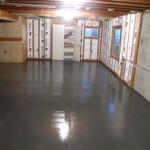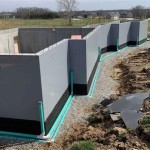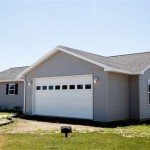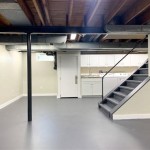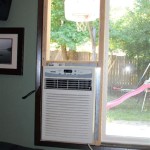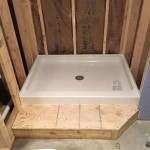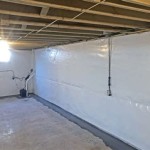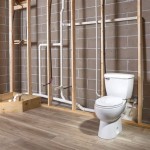Essential Aspects of Water Seepage In Basement Walls
A basement is a valuable space in your home, but it can be vulnerable to water seepage. When water seeps into your basement, it can cause a host of problems, including mold, mildew, and structural damage. Fortunately, there are a number of things you can do to prevent or stop water seepage in your basement walls.
The first step is to identify the source of the water. Water can seep into your basement through cracks in the walls or foundation, through window wells, or through the floor. Once you know where the water is coming from, you can take steps to seal the leak.
If the leak is coming from a crack in the wall or foundation, you can seal it with a hydraulic cement or epoxy injection. If the leak is coming from a window well, you can seal it with a waterproof sealant. If the leak is coming from the floor, you can install a sump pump to remove the water.
In addition to sealing the leak, you should also take steps to prevent water from seeping into your basement in the first place. This can be done by grading the soil around your home so that water flows away from the foundation, by installing gutters and downspouts to direct water away from your home, and by sealing any cracks or gaps in your home's exterior.
If you have water seepage in your basement, it is important to take action to stop the leak and prevent further damage. By following the steps outlined above, you can keep your basement dry and protect your home from water damage.
Causes of Water Seepage in Basement Walls
There are a number of factors that can contribute to water seepage in basement walls, including:
- Hydrostatic pressure: Hydrostatic pressure is the pressure exerted by water on a surface. When the hydrostatic pressure outside your basement walls is greater than the hydrostatic pressure inside your basement, water will seep into your basement through cracks or gaps in the walls.
- Cracks in the walls or foundation: Cracks in the walls or foundation of your home can allow water to seep into your basement. Cracks can be caused by a number of factors, including settling, shifting soil, and tree roots.
- Window wells: Window wells are designed to allow light and ventilation into basement windows. However, they can also be a source of water seepage. If the window wells are not properly sealed, water can seep into your basement through the cracks around the windows.
- Floor drains: Floor drains are designed to drain water away from your basement. However, if the floor drains are not properly installed or maintained, they can allow water to seep into your basement.
Consequences of Water Seepage in Basement Walls
Water seepage in basement walls can have a number of negative consequences, including:
- Mold and mildew: Mold and mildew thrive in damp environments, and water seepage in basement walls can create the perfect environment for these fungi to grow. Mold and mildew can cause a number of health problems, including respiratory problems, allergies, and asthma.
- Structural damage: Water seepage in basement walls can also cause structural damage to your home. Water can damage the foundation of your home, causing it to settle and crack. Water can also damage the walls and floors of your basement, making them weak and unstable.
- Electrical hazards: Water seepage in basement walls can also create electrical hazards. Water can damage electrical wires and outlets, creating a risk of electrical shock or fire.
Preventing Water Seepage in Basement Walls
There are a number of things you can do to prevent water seepage in basement walls, including:
- Grading the soil around your home: Grading the soil around your home so that water flows away from the foundation will help to reduce hydrostatic pressure on your basement walls.
- Installing gutters and downspouts: Gutters and downspouts will help to direct water away from your home, reducing the amount of water that seeps into your basement.
- Sealing cracks in the walls or foundation: Sealing cracks in the walls or foundation of your home will help to prevent water from seeping into your basement.
- Installing a sump pump: A sump pump will help to remove water from your basement, reducing the risk of water damage.

Top Causes Of Water Seepage And Basement Leaks

Repairing Leaking Basement Walls What Works And Doesn T Work For Wall Leak Repairs

Basement Water Seepage Causes Prevention Mt Drains

Repairing Leaking Basement Walls What Works And Doesn T Work For Wall Leak Repairs

Wet Basement Walls Causes Solutions Acculevel

Wet Basement Diy Repair Guide Radonseal

How To Fix Water Leaking Into Basement After Heavy Rain Gj Macrae

Get To Know How A Leaky Basement Can Ruin Your Home

Help My Basement Leaks When It Rains News And Events For Systems Inc

Basement Leak Between The Wall And Floor Cove Joint Leaks
See Also

